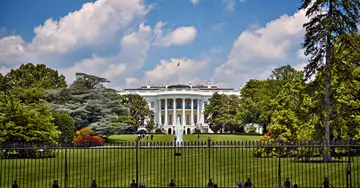U.S. President Joe Biden's administration will push Congress to require cryptocurrency exchanges to keep their customers' money separate from their own company funds, according to a person familiar with the plan that could restrict the way the industry does business.
Spurred by Coinbase's (COIN) recent disclosure that customers' money would be impounded in the event of the company's bankruptcy, federal officials intend to push U.S. lawmakers to fix the problem by insisting that a future legal framework require crypto firms to keep customers' assets segregated. This type of custody rule is standard for financial firms like futures platforms, but crypto exchanges routinely commingle their funds with clients' holdings in the same pot - a situation the government wants to see ended through legislation. In the securities industry, commingling funds is common, but investments are also more heavily regulated.
Federal officials will push in the coming weeks to include the change in any crypto bill considered by Congress, the person said, building on an assertion made last year in the President's Working Group on Financial Markets report on stablecoins: Companies that host crypto wallets need close government oversight. The administration believes trading platforms should continue to allow pooling of customer assets, so companies can still manage trades internally and don't have to store every move on a blockchain.
Coinbase, a publicly traded company that is one of the largest exchanges in the industry, admitted in a filing with the Securities and Exchange Commission last week that "in the event of bankruptcy, the crypto assets we hold on behalf of our customers could be subject to bankruptcy proceedings and those customers could be treated as our general unsecured creditors." That's the lowest tier of people who get paid out when a company fails, suggesting that a misstep by Coinbase could lock up customers' tokens indefinitely - or send them away to pay other creditors.
"Don't think you actually own your tokens when you go into a digital wallet," Securities and Exchange Commission (SEC) Chairman Gary Gensler said at a conference this week, underscoring some of the federal government's concerns about the safekeeping of investors' assets. "If the platform collapses, you only have a counterparty relationship with the platform. Get in line with the bankruptcy court."
When a company takes over a client's tokens, it can use them as it sees fit, Gensler said. In fact, exchanges "often trade against you," he said. And with customers losing billions in the wreckage of Luna's algorithmic stablecoin, terraUSD (UST), his advocacy for investor protection could gain momentum.
"Democrats in Congress will follow his lead and step up their calls for stronger oversight," Jaret Seiberg, a Washington-based analyst at Cowen Group, Inc. predicted in a research note this week. "The problems with TerraUSD and the decline in crypto valuations will make it politically more difficult for Republicans to effectively oppose Gensler's policy agenda."
For its part, Coinbase - reeling from a loss of more than 80% of its stock price since last year - reassured its nervous customers and investors that the troubling emergence of its SEC filing should say nothing about its prospects. Founder and CEO Brian Armstrong said the disclosures were merely a response to a new SEC request and that his company is not in danger of filing for bankruptcy protection.
For now, the leading crypto platforms - which include names like Binance.US, FTX and Kraken - don't have to scramble to comply with the government's push for a custody rule. A deeply divided and essentially immobile Congress is unlikely to produce legislation this year, especially as lawmakers prepare for the bloody arena of November's midterm elections. The most optimistic estimates are that a crypto bill will be enacted when the dust settles in the new Congress next year.
But not everyone sees client money foreclosure as the best solution.
Instead of focusing on the lack of segregation of customer funds at digital asset exchanges, which also applies to securities held in "street name" at DTCC, lawmakers should work on a digital asset investor protection law that mirrors the Securities Investor Protection Act, said Dave Weisberger, co-founder and CEO of CoinRoutes, Inc. It could give investors "primary status in bankruptcy proceedings," and it could also establish a catch-all fund to cover losses, similar to what securities investors have.
For others, a law prohibiting firms from commingling their clients' assets with their own would still be the bare minimum for those calling for strong investor protections.
"A lot more needs to be done," said Patrick McCarty, a financial adviser and former regulator who teaches crypto courses at Georgetown Law School. He said segregated accounts would be "a significant step forward," but argued that strict regulations and a deep overhaul of the business model are needed to return to cryptocurrency's founding ideas of recording every transaction in an indelible public ledger.
"Why advocate for a band-aid - albeit a significant one - when it looks like major surgery is needed to protect investors?" said McCarty.

